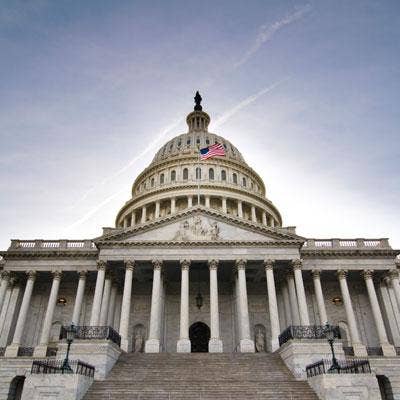10 Unanswered Questions About The CSC Split

Surviving in a post-split world
CSC will begin life as two separate companies in October, one focusing on the $8.1 billion commercial and non-U.S. government client portfolio, and the other on the $4.1 billion U.S. public sector business.
Two things, however, are a given any time a company is going through major changes: uncertainty, and a line of competitors trying to capitalize on that uncertainty by trying to steal away customers.
Here CRN lays out some of the biggest questions that remain to be answered regarding CSC's split, with perspectives from CSC CEO Mike Lawrie, Technology Business Research Analyst Patrick Heffernan and IDC Systems Integration and IT Consulting Research Director Gard Little.

10. How will the split affect CSC's existing vendor relationships?
CSC currently has strong alliances with IBM around its software business and the Bluemix cloud application development platform, and IT Consulting Research Director Gard Little is curious about whether both commercial and government companies will continue to have access to those tools once the company splits.
Little also wonders how CSC's move away from infrastructure ownership will affect the public sector business, as well as if public sector customers will have access to CSC's existing alliances with Amazon Web Services, AT&T and Microsoft Azure.
The division also doesn't move the needle for CSC's public sector customers in Europe and Asia, who will be clear outliers in a company that primarily serves commercial customers.

9. Why is CSC awarding a $1.5 billion dividend after sales fell by 6 percent?
CSC plans to pay at closing a cash dividend of $10.50 for each of its 141 million outstanding shares, costing the systems integrator a combined $1.48 billion. Little said he feels the money could be better spent fueling innovation and growth of CSC's emerging technology portfolio.
"Did CSC not have a better use for that money in helping these two companies get started?" he asked.
On the other hand, J.P. Morgan welcome the dividend as a shareholder-friendly action.
Completion of the split will not require a shareholder vote, though final approval from the CSC board of directors is required. The board unanimously backed the separation plan.

8. Why is CSC moving debt from its commercial to its government business?
As the separation proceeds, CSC Chief Financial Officer Paul Saleh said the company expects to put more debt into the public sector side of its business and retire some debt on the commercial side.
At closing, Saleh said the public sector unit is expected to have a debt-to-EBITDA (earnings before interest, taxation, depreciation and amortization) ratio of 2.5-to-1, while the commercial unit will have a debt-to-EBITDA ratio of 1-to-1. This ratio indicates how many years it would take for a company to pay back its debt, assuming net debt and EBITDA held constant.
Debt is often a factor in valuating prospective acquisition targets.

7. Will the split make It easier for CSC to grow Its cloud business?
CSC-Global Commercial needs to make a wholesale change in how it goes to market around digital, analytics and cloud, Technology Business Research Analyst Heffernan said.
Although the company has highlighted its growth around cloud, big data and security, the eroding legacy information technology outsourcing sector still makes up $2.2 billion of business on the commercial side, according to Tien-tsin Huang, a senior analyst for J.P. Morgan.
"They've been a lagger in terms of innovation and jumping on this transition [to cloud]," Little said.
Little added that CSC could benefit from partnering with professional services firm PricewaterhouseCoopers or Indian technology company HCL for some cloud leadership.

6. Will other legacy solution providers follow CSC's lead and split up?
CSC is far from the only technology company carrying out a split, following in the footsteps of Hewlett-Packard, Symantec, IBM and eBay. The breakup discussions are focused around older IT companies struggling to transition to a cloud service delivery model, Little said.
"A lot of traditional IT service companies around for decades are splitting up," Little said.
Potential solution provider candidates for splits or other reorganizations include Ciber, where investor Lone Star Ventures has pushed through board membership changes; Unisys, which hired a new CEO in January and plans to lay off 1,840 workers; and Systemax, which plans to close 31 retail stores and lay off 1,500 workers.

5. Why is CSC looking to complete its split in just five months?
Symantec is taking 16 months to separate its security and information management businesses. Hewlett-Packard needs 15 months to split its enterprise, and printing and device businesses. And the eBay/PayPal divorce is expected to take nearly a year.
Yet CSC expects the separation of its commercial and government businesses to be completed by Oct. 25.
The expedited timetable might be possible because Lawrie said CSC has been operating for quite some time in a way that would allow a split to easily happen, with each of the businesses already having separate financial, communications and human resources staffs. The process should cost $50 million to $75 million.

4. How many executives will leave CSC as part of the split?
Attrition of senior management is one of the strongest indicators of whether CSC will succeed or struggle coming out of the split, Heffernan said.
"There's a long runway for all of CSC's competitors in the federal IT space to start all the little whispers," Heffernan said.
Little expects CSC to experience a typical level of attrition for a transition period, falling safely between every executive sticking around, and a massive brain-drain.
CSC has already lost some top talent in recent years, with former global cloud lead Siki Giunta moving to Verizon in 2013, and former global cybersecurity lead Sam Visner leaving for ICF in August 2014.

3. Why Did CSC split rather than sell off all or part of the company?
CEO Mike Lawrie declined to directly address a question from an analyst Tuesday about why CSC decided to pursue a split rather than sell off all or part of the company.
"Believe me, we've done a thorough analysis over a period of time and looked at different options," Lawrie said. "We felt that, right now, at this point in time, this [split] was the best option or transaction that could unlock value."
Reuters reported back in February that CSC had been pursued for a sale to private equity firm Carlyle Group and fellow solution provider behemoth Capgemini. But those buyout talks fizzled soon after starting.

2. Will one of the new companies be acquired?
Either CSC's commercial or government business could be sold off during the separation process through a Reverse Morris Trust, which combines a spinoff with a statutory merger to allow for a tax-free transfer of a subsidiary under federal law. Although nothing precludes a sale, Lawrie said Tuesday that CSC's primary focus is on moving forward as two market-leading companies.
Heffernan said that CSC's government business could be of interest to a foreign-based company, such as Atos or Capgemini, that's looking to expand its U.S. operations, while the global presence and book of business held by CSC's commercial business could be appealing to companies such as Cognizant, Infosys and Tata Consultancy Services.

1. Who will lead the U.S. public sector company?
CSC hasn't yet decided who will serve as CEO of its public sector company, although Lawrie (pictured) will serve as the executive chairman. Lawrie also will be CEO of CSC's global commercial company.
Some possible internal candidates include: David Zolet, executive vice president and general manager of the Americas region; Larry Prior, executive vice president and general manager of North American public sector; and Ashish Mahadwar, executive vice president and general manager of CSC's emerging business group.
Heffernan, however, would prefer that CSC separates itself from the competition by bringing in someone from a non-IT company, such as Boeing, Siemens or General Electric, to run the government business.